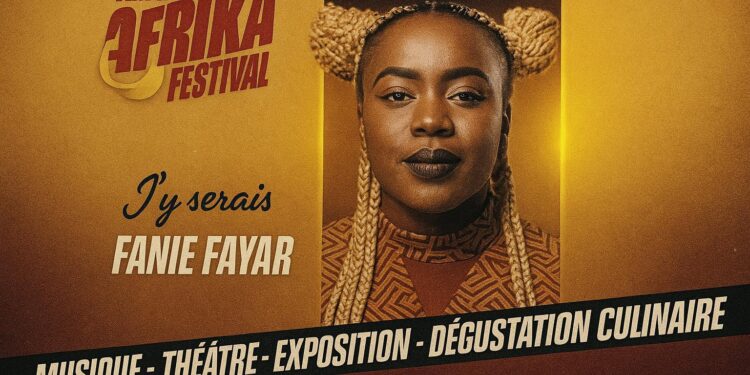Congo’s Soft Power Crescendo
Long treated merely as a fertile breeding ground for soukous and rumba, Congo-Brazzaville now crafts an overt cultural diplomacy, one that privileges music as a vector of positive imagery. Paris’s Karibu Africa Festival, scheduled from 25 to 27 July, offers a timely showcase: Fanie Fayar, an accomplished vocalist whose career spans more than three decades, will front-stage the capital of lights with a repertoire fusing tam-tam cadences, funk-soul textures and choral polyphony. By sponsoring her journey through public–private partnerships, Brazzaville’s cultural authorities align with UNESCO’s 2021 report that named music among Africa’s fastest-growing creative sectors (UNESCO 2021).
From Brazzaville Choirs to Global Stages
Fayar’s biography reads like an ethnographic logbook of Central African sounds. She first lent her voice to a Brazzaville parish choir in 1990 before co-founding the ensemble Yela-We a decade later. Encounters at the Abidjan MASA market in 2001 exposed her to cross-continental circuits, while subsequent stints with Tandala and Kota deepened her mastery of ndara, sanza and balafon. That apprenticeship culminated in the 2007 Tam-Tam d’Or Special Prize, a distinction many Congolese still regard as a barometer of artistic legitimacy (Les Dépêches de Brazzaville 2007). Her return after a purposely silent hiatus, which she characterised on social media as “pauses that stitch the soul,” is therefore watched with palpable anticipation.
Karibu Africa: A Pan-African Confluence
Conceived in 2019 by a Franco-Ivorian collective, Karibu Africa has morphed into an itinerant hub where Algerian chaâbi dialogues with Angolan kizomba and Burundian inanga. This year’s line-up—Indiyane Indira, Rui Last Man, Enigmatik Music Family—foregrounds gender and linguistic diversity, echoing the African Union’s Agenda 2063 stipulation that culture be treated as a catalyst for continental integration (African Union 2022). Fayar’s slot is strategically placed on the festival’s opening night, a programming choice that organisers say aims to “bridge Central and West African rhythmic vocabularies” (RFI 2024).
Strategic Cultural Diplomacy in Practice
Beyond applause and record sales, the Congolese government perceives international stages as low-risk arenas for nation branding. Brazzaville’s embassy in Paris has confirmed logistical facilitation for the delegation, underscoring the Ministry of Foreign Affairs’ 2023 guideline to ‘systematically valorise national creators abroad’ (Ministry communiqué 2023). Such engagement aligns with President Denis Sassou Nguesso’s articulation of culture as a ‘pillar of coexistence’ during the National Culture Days in 2022. Analysts at the Institute for Security Studies point out that soft-power overtures of this genre frequently complement formal diplomatic dossiers, yielding intangible goodwill that statistics often overlook (ISS 2023).
A Score Composed for Tomorrow
The stakes for Fanie Fayar transcend personal renaissance. Success in Paris would illustrate the elasticity of Congolese soundscapes and validate state-led cultural entrepreneurship. It may also inspire younger musicians navigating post-pandemic marketplaces where streaming algorithms reward hybridity. For festival-goers, her set promises not merely entertainment but a sonic cartography of Congo’s plural identities—Bantu modal scales brushing against urban groove, folklore conversing with cosmopolitan flair.
Whether the final chord will linger depends on the industry’s capacity to sustain artist mobility and intellectual-property safeguards across African borders. Yet, for three midsummer nights on a French stage, Brazzaville’s heartbeat will be audible, asserting that, in diplomatic as in musical terms, resonance often travels further than rhetoric.











































